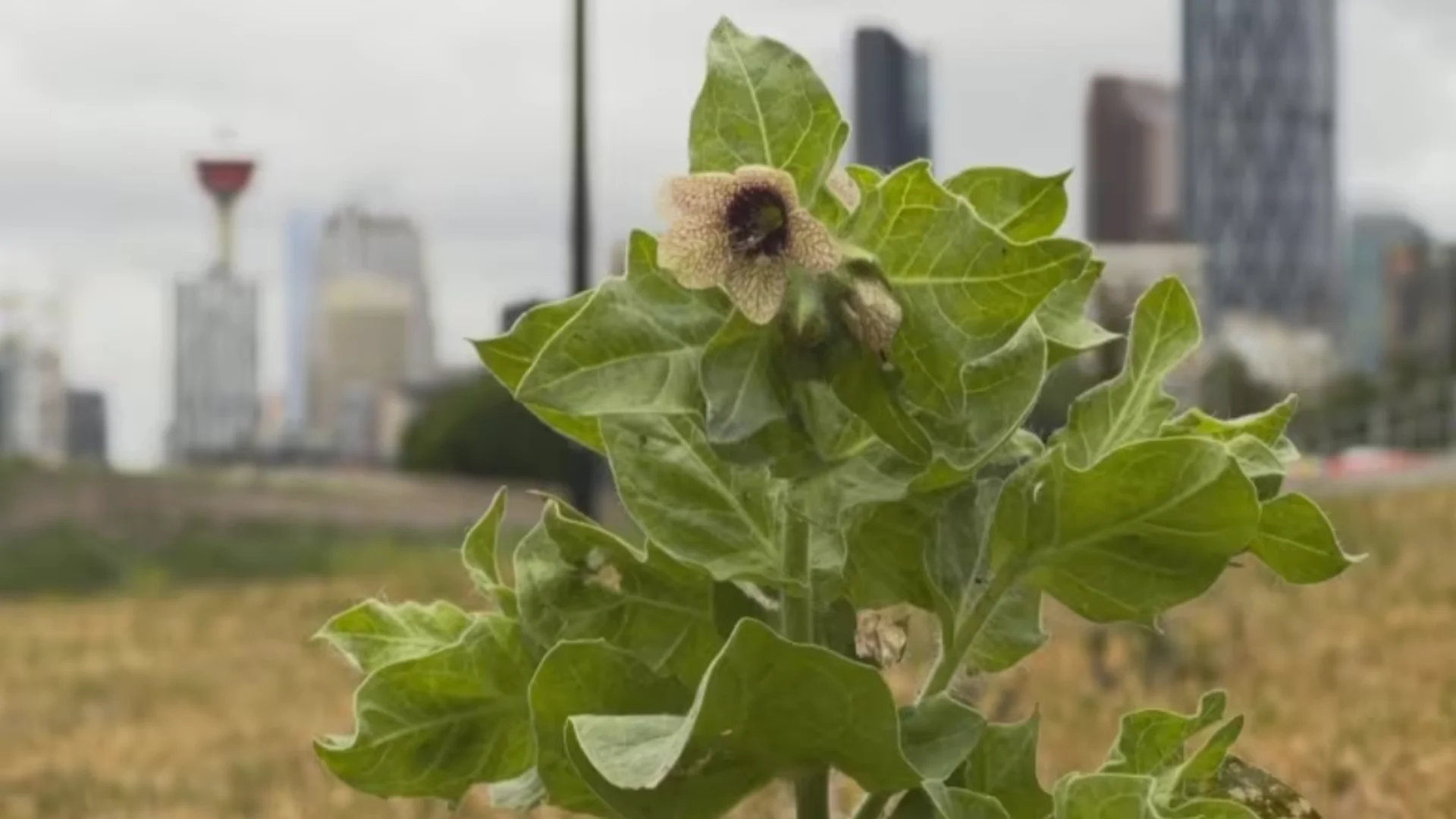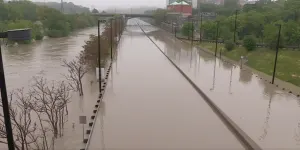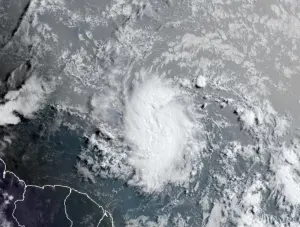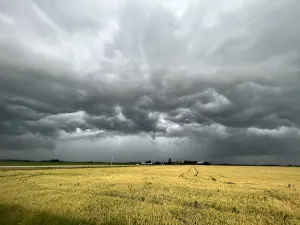
Beware the Black Henbane, a toxic plant that's appearing in Calgary
A pale yellow flower with fuzzy green leaves and purple veins has been a cause for concern for Calgarians.
The Black Henbane, an invasive plant species, has recently flourished in the city due in part to the weather. While it may be pretty, looks can be deceptive — and even harmful.
Kath Smyth with the Calgary Horticultural society says the plant is dangerous on contact and can cause rashes to human skin. It can also harm pets, and humans, if ingested.
DON'T MISS: Blue-green algae can be tricky to spot, how to recognize it
It's also particularly deceptive for animals, because, she says, they find the smell and attractive and will be drawn to it.
"You have to be very very careful of it," said Smyth. "The seed can float down the river which just always used to startle me, where it would pop up in some of the areas."

Kath Smyth is with the Calgary Horticultural Society. (Helen Pike/CBC)
While the plant has been around for a number of years, Calgarians may have started to notice it more now. It typically surfaces in the drier parts of the city and where there are more accessible fields.
With Calgary seeing more hot, dry conditions this spring, the Black Henbane is appearing more and more.
"They get a bit of dry, they get a chance to spread out and they go," Smyth said. "I honestly believe the cooler weather today and the rain, they're probably going to grow a foot, foot and a half."
The Black Henbane is classified as a noxious weed under the Alberta Weed Control act, meaning the goal with it is to prevent it from spreading.
ALSO READ: Study finds houseplants can efficiently clear dangerous toxins from air
According Sarah Verdiel, the integrated pest management technician with the City of Calgary, people who see the Black Henbane on municipally-owned property should call 311 and report it.
"They're established in the province and we're not going to be able to ever get totally rid of them," she said.
"Our goal is if we find them to remove them."
So far this year, there have been 73 calls to the city for removal.
If the Black Henbane is growing on private property, however, Verdiel says that people should wear gloves and long-sleeves, pull it out and dispose of it in the black bin, not in compost.
MUST WATCH: You've seen this weed, but did you know it's a popular food?
Thumbnail image courtesy of Helen Pike/CBC.
This article was originally written by and published for CBC News, with files from Helen Pike.









